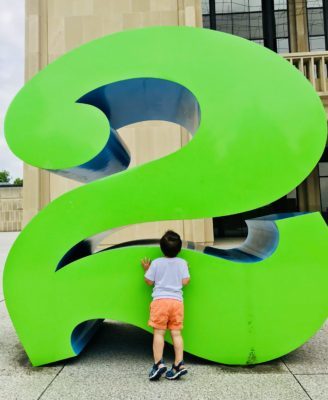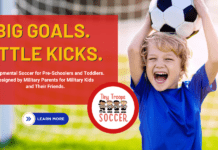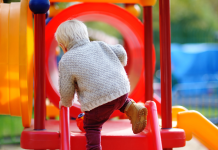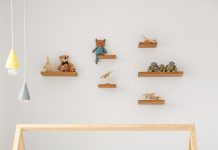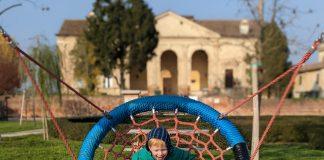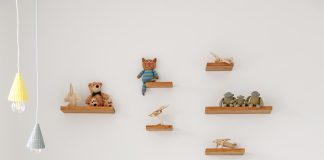
You walk into your toddlers’ room and you see him dumping all his toys on the floor. He’s not engaging in any of the toys he’s dumped but merely stumbling through the mess.
You go down to his level and say, “Let’s please pick up some of your toys before you get hurt.” He looks at you and asks “Why?” You answer his “why”; then you answer every other followup question after this, with no toys being picked up.
If you are shaking your head and thinking, “Same sister!” – you might be the parent of a toddler.
In our society, toddlers are defined by their tantrums and terrible two’s phase. The reality is, they are simply curious about their surroundings and world.
They want to understand everything they can see, hear, touch and feel. Their little minds are like sponges, absorbing everything in their path and processing it at an amazing speed. And this can feel overwhelming for a parent or caregiver.
Enter: Toddler School.
What is Toddler School? These are programs for children ages 18 months through 36 months or 3 years. The children are not necessarily learning alphabet and numbers, but rather social skills and independence. There are multiple kinds of Toddler Schools: Montessori schools, Regio Emilia schools, religious-based schools, co-ops, nature-based programs, and much more.
I learned about these programs when my oldest had just turned two. I was hesitant to send him initially, but the growth and progress I saw over the year were well worth it. For my second son, a toddler program was recommended to me from his speech therapist. I enrolled him to help boost his speech skills. I watched him flourish in his speech; it was amazing to see him able to fully express his words and feelings!
If you’re not sure whether a Toddler School program is right for your child, here are 5 reasons to consider one:
1. It nurtures a child’s curiosity.
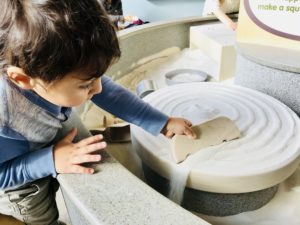 Toddler programs create an interesting and fun learning environment. I remember the day I walked into my oldest sons’ class. Everything was toddler-sized; activities were placed on trays and on low shelves for little ones to reach easily. The class wasn’t overly stimulating yet it seemed just enough to keep a two-year-old engaged. Each day followed a different indoor and outdoor program that allowed him to learn and grow in his own way. I loved everything about the way the teachers observed the children and introduced new materials and activities each day.
Toddler programs create an interesting and fun learning environment. I remember the day I walked into my oldest sons’ class. Everything was toddler-sized; activities were placed on trays and on low shelves for little ones to reach easily. The class wasn’t overly stimulating yet it seemed just enough to keep a two-year-old engaged. Each day followed a different indoor and outdoor program that allowed him to learn and grow in his own way. I loved everything about the way the teachers observed the children and introduced new materials and activities each day.
My second child went to a different toddler school, and we loved this one as well. My son’s favorite week was all about trains; the kids had an opportunity to talk with a train conductor, make a train out of boxes and learn so much about this topic. It was fun to hear about the new themes he was learning each week. These experiences and others helped shape my son’s curiosity and love for learning new and different things.
2. It develops a child’s fine and large motor skills.
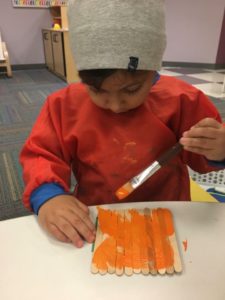 There’s no doubt that toddlers love to climb, run, and jump; all of those are defined by large motor skills. While most children love to engage in those activities, some may need a bit more help in navigating certain skills. Toddler schools assist in that. They also help in fine motor skills such as transferring objects, using utensils, or any activities using precise finger and hand movements. Children at this age are learning to advance these skills, and toddler school was a great introduction to these skills.
There’s no doubt that toddlers love to climb, run, and jump; all of those are defined by large motor skills. While most children love to engage in those activities, some may need a bit more help in navigating certain skills. Toddler schools assist in that. They also help in fine motor skills such as transferring objects, using utensils, or any activities using precise finger and hand movements. Children at this age are learning to advance these skills, and toddler school was a great introduction to these skills.
3. Toddler school helps develop language skills.
At this age, a child’s speech is developing rapidly. At toddler school, they offer children oral language experiences. Some activities that involve speech include singing songs, reading books, and playing sound games. Teachers are there to encourage a child to speak and pronounce words; they also repeat new words slowly and carefully as new words enter the classroom.
While these experiences can be done at home, I believe having a child in a different environment with different adults and children enhances their language skills. My second son was speech delayed and took part in speech therapy at home. But by him attending a toddler program, it helped his speech develop tremendously.
4. It promotes social skills.
Toddlers learn to manage their emotions through teacher and peer interactions. These interactions help them develop empathy for others and understanding that everyone “takes turns.” This can be with toys, speaking, and playing. Children also develop friendships, which sets the tone for future friendships as they get older.
5. It enhances self-care for themselves and others.
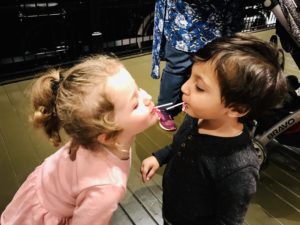 A child’s sense of self-worth grows as they learn to take care of themselves and help others. Teachers in toddler schools allow children to help in the classroom in many ways. Toddlers help set up snack time, organize toys, or may even taking care of the class pet. Children are expected to wash their hands before snack time and after using the potty; to keep personal belongings in their designated cubby; to put away toys before moving to a new activity. Having that small bit of personal care enhances independence within the child.
A child’s sense of self-worth grows as they learn to take care of themselves and help others. Teachers in toddler schools allow children to help in the classroom in many ways. Toddlers help set up snack time, organize toys, or may even taking care of the class pet. Children are expected to wash their hands before snack time and after using the potty; to keep personal belongings in their designated cubby; to put away toys before moving to a new activity. Having that small bit of personal care enhances independence within the child.
Is Toddler School right for your child? I think so!
I see these programs becoming quite popular globally and across our country. They boast great confidence, independence, and experiences in our smallest learners. My family has enjoyed our toddler school experiences, and I think you may too.


